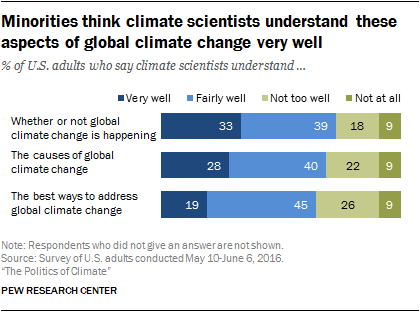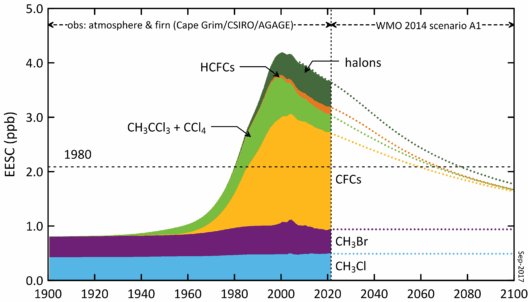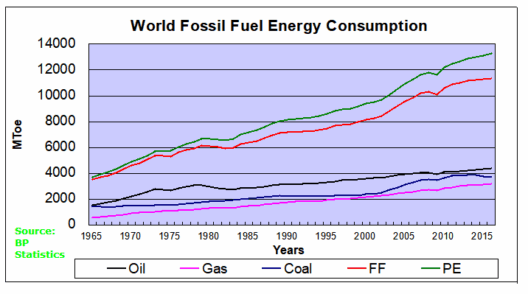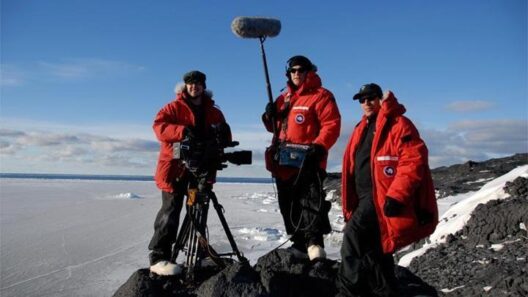The preponderance of scientific consensus on climate change is staggering, yet a palpable disconnect persists between public perception and expert insight. In fact, according to various studies, approximately 97% of climate scientists agree that climate change is not only real but largely driven by human activities. This overwhelming majority underscores a critical point: the scientific community, which has meticulously analyzed and observed the intricate nuances of our planet’s climate systems, is largely unified in its belief regarding climate change. However, the reasons behind the general population’s skepticism remain a topic of heated debate. Understanding this paradox necessitates a closer examination of the intersection between scientific evidence, public perception, and cultural context.
To initiate a compelling discussion, it is essential to understand what constitutes “belief” in the context of scientific consensus. Scientists, by virtue of their training, base their conclusions on rigorous data collection and analysis. The assertion that nearly all scientists recognize the reality of climate change stems from comprehensive evaluations of research and peer-reviewed literature. This formidable body of work substantiates claims about rising global temperatures, increased greenhouse gas emissions, and the profound consequences these changes have on weather patterns and biodiversity.
As one delves deeper into the mindsets of those who dismiss or downplay climate change, a variety of factors emerge. Cognitive biases, particularly confirmation bias, play an instrumental role. Individuals often seek out information that corroborates their pre-existing beliefs while dismissing contrary evidence. Moreover, the politicization of climate science introduces an additional layer to this dynamic. In many contexts, acknowledging climate change equates to adopting specific political ideologies, leading individuals to reject scientific findings that conflict with their worldviews.
Furthermore, societal narratives surrounding climate change can perpetuate misinformation. For instance, the fossil fuel industry’s significant lobbying efforts have successfully seeded doubt about climate science in public discourse. Promotional campaigns portraying climate science as unsettled or controversial have led to confusion and uncertainty among the populace. This deliberate obfuscation diverts attention from the scientific consensus and creates an illusion of division within the scientific community that does not exist.
Contrastingly, among scientists, there exists an unparalleled level of agreement on the fundamentals of climate change. Collaborative initiatives like the Intergovernmental Panel on Climate Change (IPCC) synthesize data from multiple studies to produce comprehensive assessments of climate impacts and projected scenarios. The consistent conclusions drawn from such efforts reinforce the urgency associated with mitigating climate effects. Scientists emphasize that the ramifications of inaction extend beyond environmental degradation; they encompass socioeconomic repercussions as well.
The ramifications of climate change are not abstract. They manifest in observable phenomena, ranging from intensified hurricanes and wildfires to unprecedented heatwaves and sea-level rise. Communities around the world are facing these consequences, with vulnerable populations disproportionately affected. The scientific community has raised red flags on these issues, yet the urgency of their warnings often meets with apathy. This disconnect points to a critical question: why can’t the scientific consensus effectively penetrate societal consciousness?
Part of this challenge can be attributed to communication barriers. Scientists often engage in highly specialized discourse, making it difficult for laypeople to grasp the complexities of climate science. Furthermore, the narrative surrounding climate change is frequently framed in terms of doom and gloom, potentially leading to a sense of hopelessness among the public. Such feelings can foster disengagement rather than inspire action. More effective communication strategies that highlight positive solutions and pathways to resilience are essential for galvanizing public interest.
Addressing the skepticism surrounding climate change also requires an understanding of human psychology. The social norm theory posits that individuals are influenced by the behaviors and beliefs of their peers. By fostering a culture where climate science is acknowledged and respected, it becomes easier to dismantle the barriers to acceptance. Community-based initiatives that showcase local scientists as trusted sources can bridge the gap between expert knowledge and public belief.
Another critical consideration is the role of education in shaping perceptions of climate change. Integrating climate science comprehensively into educational curricula ensures that future generations are informed about the realities of climate change from an early age. Exposure to interrelated concepts, such as ecology, sustainability, and the impacts of human activity on natural systems, cultivates a populace that is adept at understanding both the science and the ethical implications of climate inaction.
In contemplating the future of climate advocacy, it is apparent that engaging the public requires more than presenting scientific data. It necessitates a multifaceted approach that combines transparent communication, community involvement, and education. Scientists must strive to convey not only the urgency of climate action but also the agency individuals possess to make impactful changes. The pathway to acceptance and action lies in transforming the narrative from one of fear to one of empowerment and hope.
As the evidence mounts and the stakes escalate, the existence of a nearly unanimous scientific consensus on climate change cannot be overstated. Almost all scientists affirm the reality of climate change and advocate for immediate action to safeguard our planet’s future. By addressing the reasons for public skepticism and fostering a culture of understanding, the bridge between science and society can be strengthened, paving the way for a collective response to one of the most pressing issues of our time.








